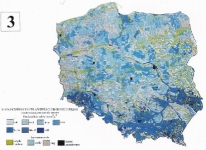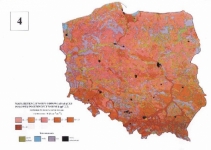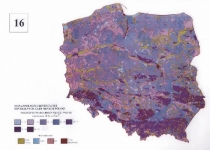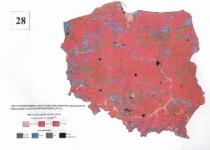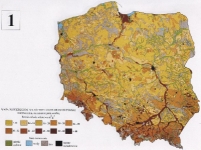A pilot line for production of salad rapeseed oil with unique health-promoting properties
Under the developmental project "Organic production of rapeseed oil with unique health-promoting properties" financially supported by the Innovative Economy Operational Programme, a pilot innovation-production-technology line has been developed to produce health-promoting consumable oil from organically grown rapeseed varieties. The venture comprises the entire process in terms of development of technology of rapeseed cultivation that would meet environmental standards and incorporate principles of Good Agricultural Practice, through implementation of cultivation of such rapeseed varieties, to production of oil with unique health-promoting properties. This kind of oil differs markedly from available refined oils, which are devoid of most health beneficial ingredients through the production process. After completion of the research project (2014) and dissemination of the investigation results, industrial-scale production of organic oil with health-promoting properties will be possible.
The biodegradable vegetable “Oil-ester” lubricating oil replacing petroleum-based oil
The biodegradable vegetable oil “Oil-ester” is designed for the lubrication of the chains of motor chainsaws for cutting wood, of presses rolling and baling hay and straw, and of other mechanisms of machines used in the natural environment.
The use of the oil-ester reduces the introduction of noxious petroleum-based oils into the natural environment. As an example, alone in Poland the demand for chain-lubricating oils is 5-6 million litres a year. Oil lubricating the chains of chainsaws or presses works in an open system and all of it gets ejected by the machines to the environment, causing its pollution. Oil-ester is produced of mustard oil which, due to its properties, cannot be used as a food product. Thanks to the technology of incomplete transesterification, developed at the Institute of Agrophysics PAS, the oil – with its high content of esters – is characterised by very good lubrication properties and is easily biodegradable, i.e. environment-friendly.
Application of Time Domain Reflectometry (TDR) technique to monitor moisture content in soils
The measuring equipment developed and manufactured by scientists and engineers from the Institute of Agrophysics Polish Academy of Sciences for laboratory and field monitoring of soil moisture content, electrical conductivity and temperature simultaneously and from the same soil volume is used in various academic institutions in many countries. Automatic data loggers from IA PAS collecting physico-chemical state of soils are equipped with variety of interfaces to connect a number of sensors including tensiometers, TDR probes, thermometers, rain gauges, etc. It is possible to communicate with a radio link via mobile Internet for data transmission and the modifications of the experimental setup. The field monitoring system of soil environment has a large integrated data memory and has a negligible current consumption allowing for long battery life operation.
Improvement of the technology of harvesting, drying, storage, and processing of cereal grains and rapeseeds
- Assessment of chemicals introduced into the market for regulation of the growth process and acceleration of ripening and equalization of rape fields
- Assessment of the impact of ripening regulators on yield, qualitative, and health-promoting properties of rapeseed
- Assessment of the technological quality of raw material supplied by producers to oleochemical industries
- Evaluation of the utility of new varieties and strains of winter oilseed rape that are to be introduced into widespread cultivation in Poland
- Assessment of the content of benzo(a)pyrene in rape seeds. Training and workshops on improvement of seed quality during harvest and storage
- Expert reports on rapeseed quality
The technologies are being developed in collaboration with the following oleochemical industries: KRUSZWICA S.A. in Kruszwica, EWICO Sp. Ltd. in Brzeg, BIELMAR in Bielsko-Biała, SYNGENTA Seeds Company Ltd. in Warsaw.
Databases and maps of the hydrophysical and physicochemical properties of Polish arable soils
Based on the “Soil Sample Bank of Mineral, Arable Soils of Poland” of the Institute of Agrophysics PAS, computer and cartographic databases and maps have been developed, concerning water retention, potential content of respective categories of water, water conductivity coefficient, specific surface and resistance to reduction processes of Polish mineral arable soils, to be used in modeling and prediction of moisture and air relations in different climate and soil conditions. These works refer to the European database of soil resources, water resources and modeling of the physical, physicochemical and biological processes depending on the weather changes, currently under development. Moreover, these works are also a part of the studies concerning optimal use of the agricultural land, currently performed in different European countries.
.
IMPLEMENTATION OFFERS
 |
Energetyczne wykorzystanie olejsłomy gorczycy białej |
 |
Starch impregnate preventing rapeseed shedding during ripening and harvest |
 |
Offer of thermographic measurements |
.
 Drukuj
Drukuj 